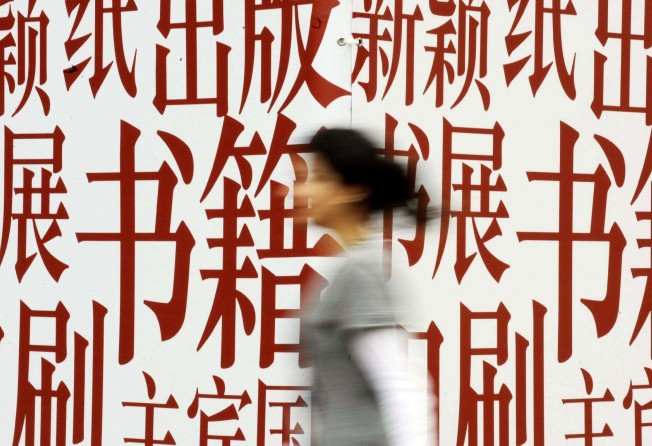
Whether traditional or simplified, Chinese characters are for communication
Raymond Young says fears of mainlandisation should not stop us teaching simplified characters in Hong Kong schools, because our children will need to communicate with people from the mainland

As a locally educated Chinese person, I consider the simplification of Chinese characters to be an affront to the aesthetics of the Chinese language. It is a massive dumbing-down for the sake of simplicity, somewhat like adopting the word “telly” as the official term for “television”. The simplified script looks foreign to us, and some of the words are a far cry from their elegant original forms used in our beloved traditional Chinese calligraphy and poetry.
Contrary to popular belief, the use of simplified characters was not initiated by the Communist government but by the Kuomintang back in the 1930s, for the purpose of promoting literacy in China. However, the jury is still out as to whether people do learn to read faster in simplified characters, as illiteracy is still not eradicated in China, but Hong Kong and Taiwan have achieved full literacy using the traditional form. Nowadays, with computer inputting technology, the ease and speed of writing in simplified characters has also ceased to be a benefit.

We may not be enamoured of simplified Chinese characters, but know them we must. The “localists” who claim to champion local values, and the likes of Civic Party member Claudia Mo Man-ching, are objecting to students learning simplified characters on the grounds that they are not commonly used in Hong Kong. The more serious accusation is that it is a conscious step towards “mainlandisation”.
We may not be enamoured of simplified Chinese characters, but know them we must
The latter concern is clearly groundless as the government’s proposition is not to replace traditional characters with simplified ones, but to help students acquire a reading knowledge of simplified characters. If we shared the localists’ fear of mainlandisation, we should perhaps stop teaching our students Putonghua too. The language is after all not “commonly used” here. Language is key to understanding a culture. If we and our next generation cannot read with ease all the written materials published on the mainland, how can we have an informed view of what is going on there?
Hong Kong has always prospered on being an efficient service provider to the world, so what harm can be done by equipping our younger generation to service our biggest client – mainland China – better? Preserving our “local” values, whatever they are, should not be at the expense of our ability to communicate with the 1.3 billion people on the mainland. When China was closed to the world, we used to look down on mainland people as parochial. We even had a term for them – “Ah Charn” – or mainland bumpkins. But now that they have seen the world, and have developed economic and political clout on the international scene, the tables are turned. We are now sometimes referred to as “Kong Charn” – arrogant Hong Kong people who know little about what is happening in the rest of China. I think this term should also include those Hong Kong people who make little effort to learn Putonghua or simplified characters.
The rest of the world is indeed catching up fast in terms of understanding China. Chinese is now becoming a popular second language in schools around the world, and in most cases it is taught through simplified characters. So if the localists had their way, we would not only have difficulty communicating with mainland Chinese, but also communicating with the rest of the world in Chinese. Some time ago, when localists here were protesting against “locust tourists” from the mainland, I was travelling in Korea, and I saw banners in the heart of Seoul with big Chinese words welcoming Chinese tourists – in simplified characters, of course.
Raymond Young is a retired civil servant and currently a columnist and novelist